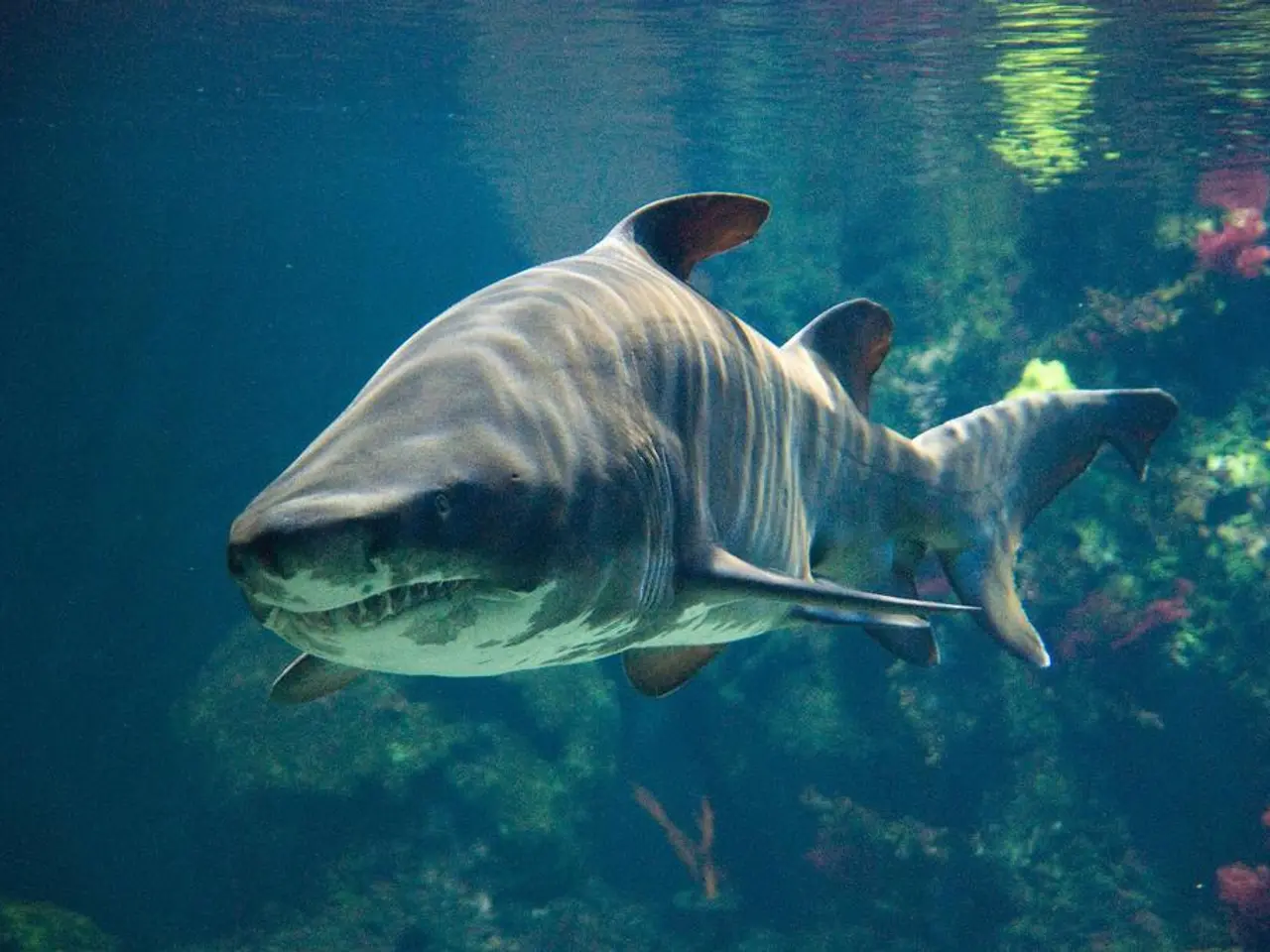Human-induced injuries take a heavy toll on whale sharks, with a new study revealing that 80% of their wounds in Indonesia can be attributed to human activity.
In the vast waters of the Bird's Head Seascape (BHS) in eastern Indonesia, a team of international marine biologists, led by the Elasmobranch Institute Indonesia, has been conducting a comprehensive study on the endangered whale shark population. The research, published in the journal "Frontiers in Marine Science," has shed light on the urgent need for conservation efforts to protect these gentle giants.
Over a span of 13 years, from 2010 to 2023, the team studied more than 200 whale sharks. Their findings are alarming, with 206 out of the observed 268 sharks displaying injuries or scarring. The study reveals that most of these injuries (80.6%) are caused by human activities, such as entanglement in fishing gear, accidental bycatch, and ship strikes.
The study's last author, Dr Mark Erdmann, emphasises the slow recovery rate of whale sharks, which take 30 years to reach sexual maturity. This slowness makes them particularly vulnerable to threats and injuries, and recovery can be a lengthy process.
The researchers found specific areas where protective measures are needed, such as from bagans (traditional fishing platforms) and boats. They recommend working with the management authorities of marine protected areas to develop regulations that require slight modifications to bagans to protect whale sharks.
Interestingly, most whale shark sightings took place at bagans, where they were feeding on anchovies, herrings, and sprats. The team's database of whale shark sightings was compiled from field surveys and citizen science, underscoring the importance of community involvement in conservation efforts.
The study also highlights the economic significance of whale sharks. These majestic creatures generate millions of dollars through tourism, further emphasising the need for improved conservation efforts.
Dr Edy Setyawan, the lead conservation scientist at the Elasmobranch Institute Indonesia and the study's corresponding author, stresses the importance of continued research and collaboration to ensure the survival of these magnificent creatures. The study on whale sharks in Indonesia is a significant step towards understanding these enigmatic animals and preserving their habitat for future generations.
Read also:
- Nightly sweat episodes linked to GERD: Crucial insights explained
- Antitussives: List of Examples, Functions, Adverse Reactions, and Additional Details
- Asthma Diagnosis: Exploring FeNO Tests and Related Treatments
- Unfortunate Financial Disarray for a Family from California After an Expensive Emergency Room Visit with Their Burned Infant








